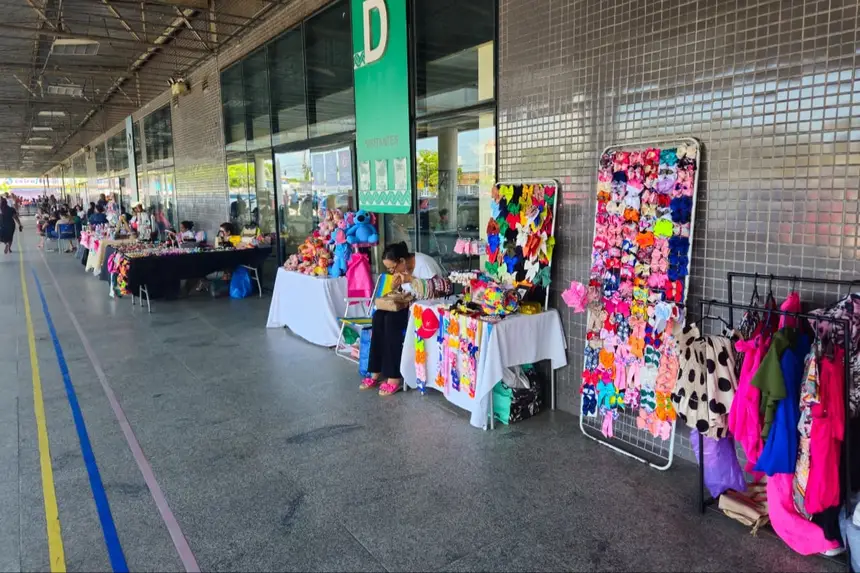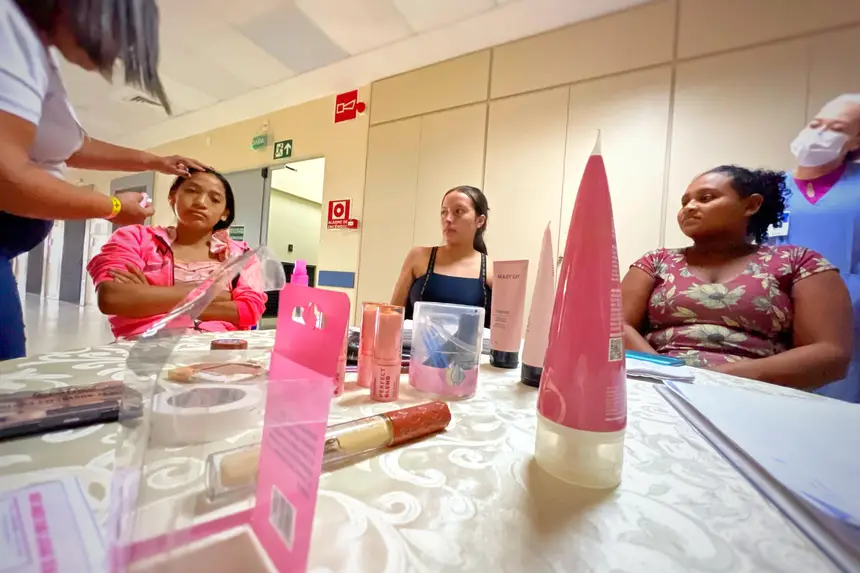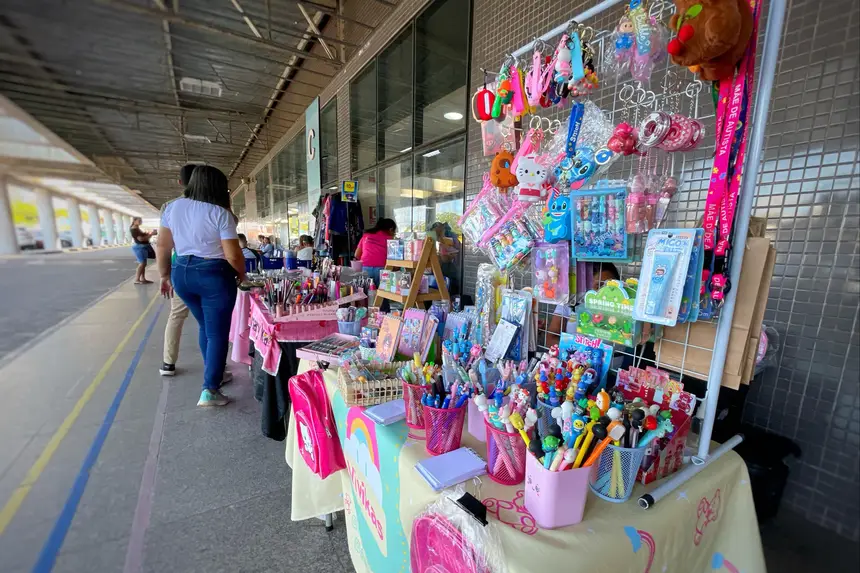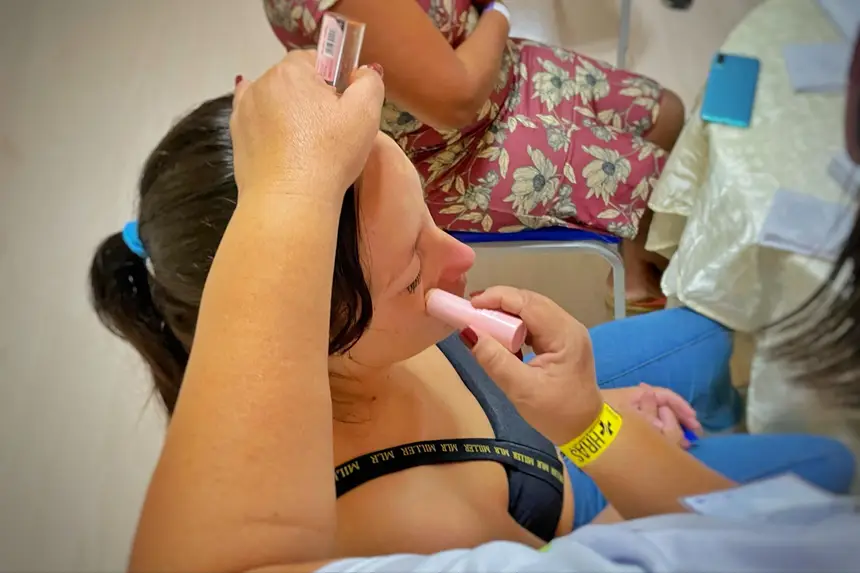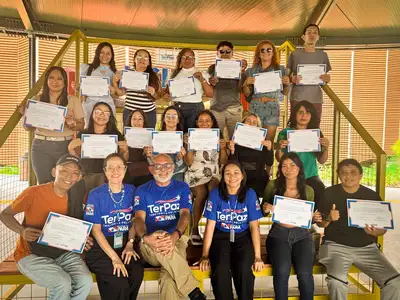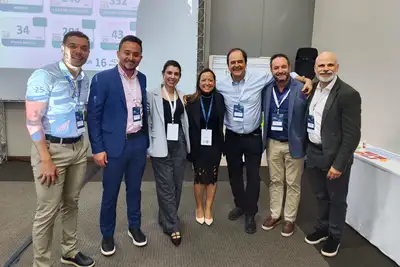Hospital Abelardo Santos encourages solidarity economy with Craft Fair
On this occasion, workshops are offered for mothers of children undergoing treatment at HRAS as an incentive for generating extra income for the community
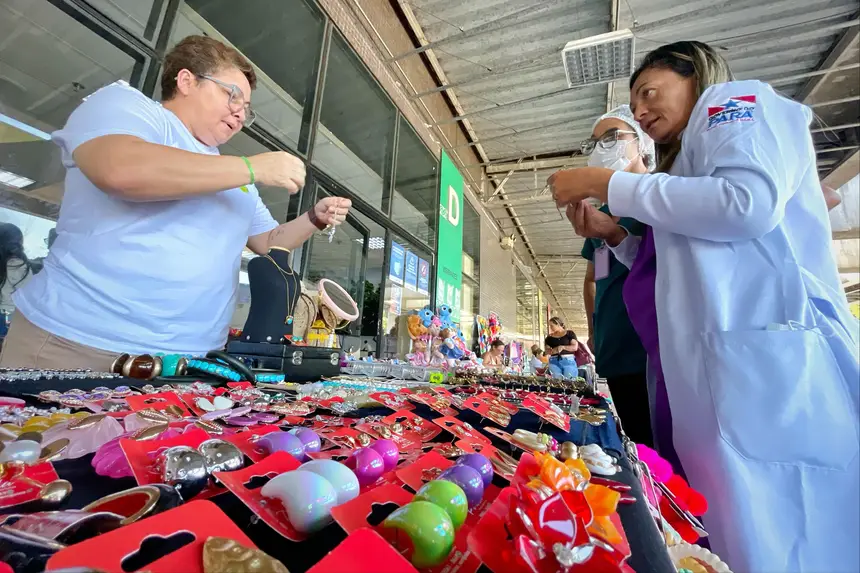
The Dr. Abelardo Santos Regional Hospital (HRAS), in Icoaraci, a district of Belém, is holding the traditional Craft Fair on the unit's boardwalk until next Friday (15). The program encourages local entrepreneurship by bringing together artisans from the region to showcase handmade items, such as decorative articles, embroidery, crochet, bracelets, and other objects, in addition to offering workshops for mothers of children undergoing treatment at the facility.

Artisan Darlene Campos, 48, highlighted the relevance of the fair to increase the visibility of her work. “I sell fabric dolls. Many times, we are restricted to our groups of friends or family. But here at ‘Abelardo Santos’ it’s different… hundreds of people pass by daily who can get to know our creations, purchase them at interesting prices, and support us,” she emphasized.
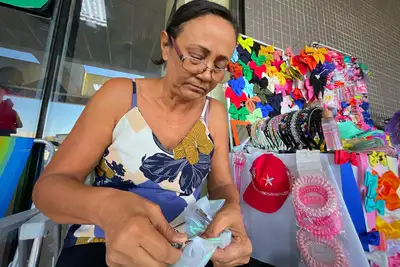
In addition to her, 15 other women meet at least once a month at the hospital to showcase goods from different segments. “One of the main points of our work is valuing our skills; the financial return comes in third place. This is because, in addition to income, we also seek to offer solidarity actions to the hospital's patients,” said artisan Vânia Aviz, 60.
Creative Corner - Vânia's statement reminds us that, within the program, the Creative Corner project also takes place, which promotes workshops for mothers who accompany their children in treatment at the institution. The proposal is precisely to involve artisans so that they can provide a kind of training, teaching new skills, from making handmade products to aesthetic care.
This week, the focus was on aesthetics and beauty. Freelancer Ester Brito Cavalcante, 19, mother of newborn Ester Brito Cavalcante, who is hospitalized, participated in the activity. “I learned how to do a skin cleansing and how to identify which product is safest for each skin type. I liked it a lot and, in addition to applying the technique on myself, I think about learning more about the techniques and applying them.”
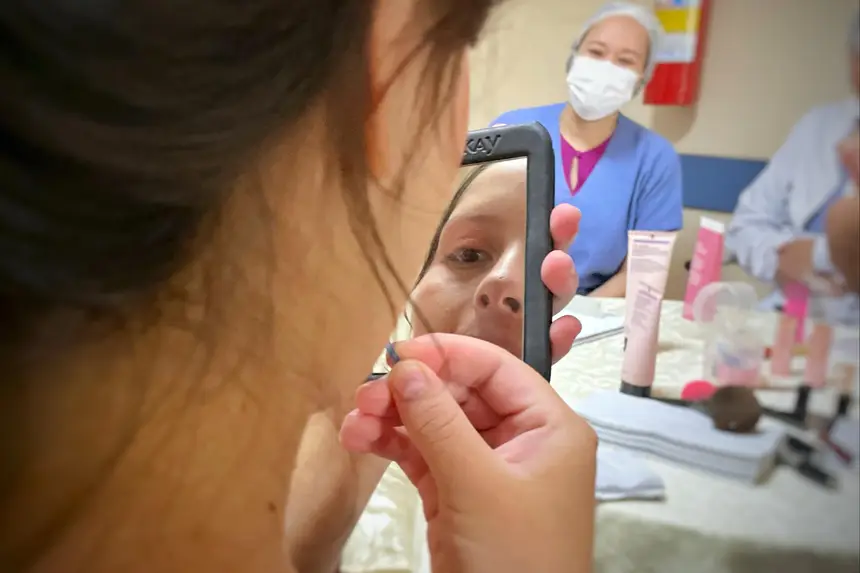
The Colombian Laura Nataly Mendez Medina, 27, paid attention to every instruction. “There were interesting tips. Of course, the workshop sparked the desire to seek more knowledge outside. We learned a lot, but we can further improve, look for a vocational center, and expand our knowledge,” she said, mother of little Marlon David, who is only 21 days old.
Humanization - According to administrative assistant Leonardo Silva, a member of the Humanization Committee (CH) of HRAS, this moment, in addition to fostering entrepreneurship, is an opportunity for knowledge exchange. “The artisans gain space and our patients receive knowledge. It’s a way to value their products, but also to provide moments of relaxation for our users,” he highlighted.
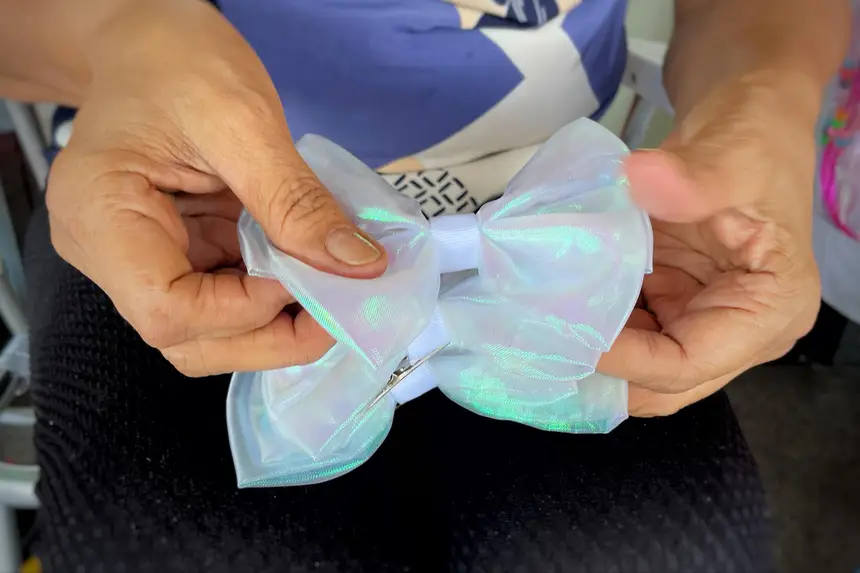
This is just one of the examples of humanized action at the largest public unit of the Government of Pará. The Abelardo Santos Regional Hospital, for the first time, in 2024, surpassed 1 million attendances. Given this volume, the institution promoted more than 120 humanization initiatives, benefiting thousands of patients and their families, as well as collaborators and nearby communities.
“Are we talking about actions that require planning and dedication? Yes! But it is important to highlight that simple gestures also make a difference, such as a smile, an attentive look, and time dedicated to listening or even to clarify doubts. Small attitudes transform the experience of anyone, making hospitalization less traumatic and more positive for everyone,” concluded Leonardo Silva.


